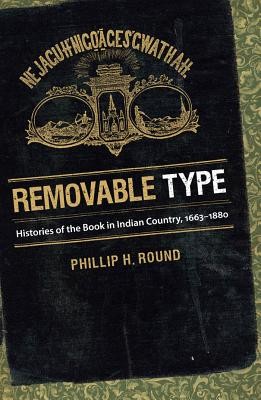
- We will send in 10–14 business days.
- Author: Phillip H Round
- Publisher: University of North Carolina Press
- ISBN-10: 0807871206
- ISBN-13: 9780807871201
- Format: 16.8 x 23.5 x 1.9 cm, softcover
- Language: English
- SAVE -10% with code: EXTRA
Reviews
Description
In 1663, the Puritan missionary John Eliot, with the help of a Nipmuck convert whom the English called James Printer, produced the first Bible printed in North America. It was printed not in English but in Algonquian, making it one of the first books printed in a Native language. In this ambitious and multidisciplinary work, Phillip Round examines the relationship between Native Americans and printed books over a two-hundred-year period, uncovering the individual, communal, regional, and political contexts for Native peoples' use of the printed word. From the northeastern woodlands to the Great Plains, Round argues, alphabetic literacy and printed books mattered greatly in the emergent, transitional cultural formations of indigenous nations threatened by European imperialism.
Removable Type showcases the varied ways that Native peoples produced and utilized printed texts over time, approaching them as both opportunity and threat. Surveying this rich history, Round addresses such issues as the role of white missionaries and Christian texts in the dissemination of print culture in Indian Country, the establishment of "national" publishing houses by tribes, the production and consumption of bilingual texts, the importance of copyright in establishing Native intellectual sovereignty (and the sometimes corrosive effects of reprinting thereon), and the significance of illustrations.
EXTRA 10 % discount with code: EXTRA
The promotion ends in 8d.14:39:52
The discount code is valid when purchasing from 10 €. Discounts do not stack.
- Author: Phillip H Round
- Publisher: University of North Carolina Press
- ISBN-10: 0807871206
- ISBN-13: 9780807871201
- Format: 16.8 x 23.5 x 1.9 cm, softcover
- Language: English English
In 1663, the Puritan missionary John Eliot, with the help of a Nipmuck convert whom the English called James Printer, produced the first Bible printed in North America. It was printed not in English but in Algonquian, making it one of the first books printed in a Native language. In this ambitious and multidisciplinary work, Phillip Round examines the relationship between Native Americans and printed books over a two-hundred-year period, uncovering the individual, communal, regional, and political contexts for Native peoples' use of the printed word. From the northeastern woodlands to the Great Plains, Round argues, alphabetic literacy and printed books mattered greatly in the emergent, transitional cultural formations of indigenous nations threatened by European imperialism.
Removable Type showcases the varied ways that Native peoples produced and utilized printed texts over time, approaching them as both opportunity and threat. Surveying this rich history, Round addresses such issues as the role of white missionaries and Christian texts in the dissemination of print culture in Indian Country, the establishment of "national" publishing houses by tribes, the production and consumption of bilingual texts, the importance of copyright in establishing Native intellectual sovereignty (and the sometimes corrosive effects of reprinting thereon), and the significance of illustrations.


Reviews